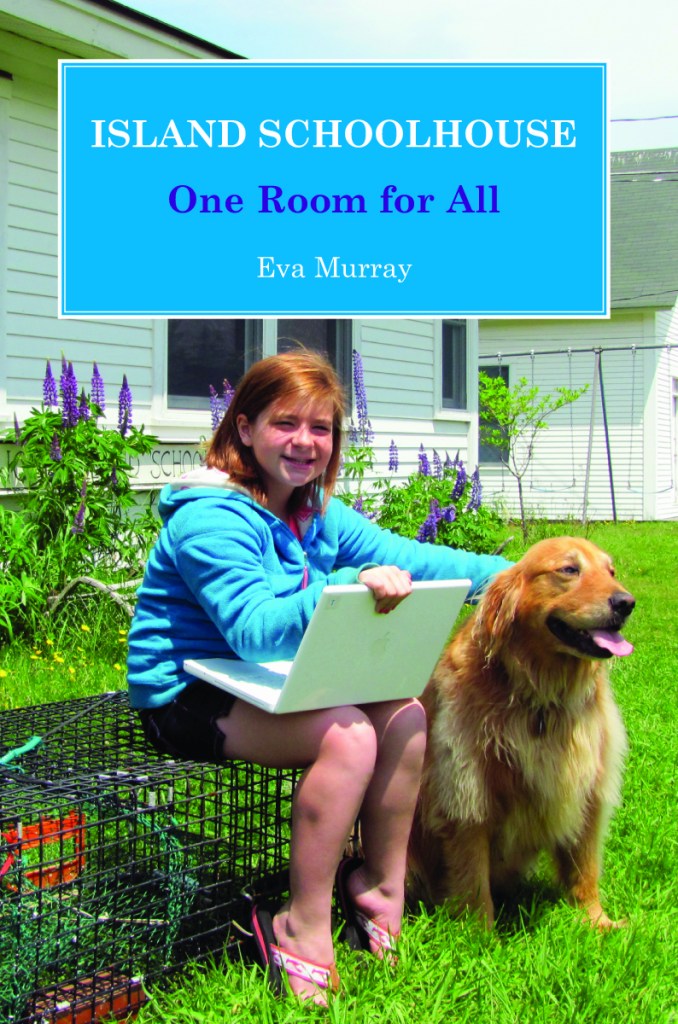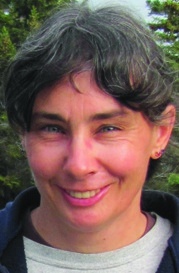Eva Murray decided to write a book about small schools on Maine islands because she felt she was uniquely qualified.
And she is.
Murray was the teacher in the Matinicus one-room school in the late 1980s. Then she married an island resident, and sent her own children to the school there. Over the years she has volunteered at the school, substitute taught, and served on the island’s school board and as the tiny school district’s bookkeeper.
In an earlier book, “Well Out to Sea: Year-Round on Matinicus Island,” Murray had written about island life, in the hope of dispelling myths about how Maine islands are inhabited either by rich summer folk or members of society’s fringe.
With her current book, “Island Schoolhouse: One Room for All” (Tilbury House), Murray explores a very specific aspect of island life — island schools — while trying to debunk more myths at the same time.
Murray, 48, has lived on Matinicus — more than 20 miles out to sea from Rockland — for 25 years. She writes columns for several publications, is an emergency medical technician, operates a small bakery, and has served in town government.
Q: What prompted you to write this book?
A: I had two main reasons for doing it. One was the realization that I had a unique insider’s perspective. I’ve been a teacher and parent, I’ve dealt with finances as the district bookkeeper, and I’ve been on the school board. Usually when something is written about an island, it’s drop-in journalism. They write something about how cute or quaint it is, or somebody writes a memoir. But they don’t give people a sense of what it’s like to go there, work there, from day to day.
The other reason was all the misconceptions. It makes me cringe when I hear people say things like “there are no longer any kids on the islands” or that the state ships us all our teachers. Neither is true.
The idea that there’s a one-room school at all makes most people think of the 1800s or living-history museums. But this book is about a few regular, multi-grade schools on Maine islands that are giving children a 21st-century education. They’ve got special education, Internet, things other schools have, they just happen to be in one room because there aren’t enough students for more. It’s really a neat mix of the old-fashioned with high-tech elements.
Q: Besides drawing on your own experience, what sort of research did you do? What did you find?
A: I made several visits to the other islands, several days at a time. I did a lot of hanging around and chatting and sitting in on classes. I spent about five years working on this, getting local details, talking to people.
One of the things I’d like people to know is how much collaboration (island schools) do with each other now, with video conferencing and combined field trips, things like that. These island teachers are working hard to support each other, and the sense of isolation now is considerably less.
Q: What are some of the differences you found among island schools?
A: One of the things that is different island to island is that each island has its own transportation and logistics challenges. That’s another misconception, that it’s easy to go from one island to another. People ask ‘Why don’t all the islands become one school district?” From Matinicus you can see Isle Au Haut, but to get there you have to fly or take a boat to the mainland, weather permitting, drive from Rockland to Stonington, and wait for the Isle Au Haut mail boat. Some islands have a state ferry, some have a scheduled mail boat, some have a flying service. It’s really very difficult and complex to get students together, and expensive. So when they do get together it’s largely because the local school boards feel it’s worth the expense.
Q: What do you hope people take away from this book?
A: For educators, it’s a look at how these schools work. There are a lot of examples set by these multi-age teachers on how to do a lot of things effectively, like meeting every student where they are. Some of the things are cutting edge. The other thing I’d like people to know (is) that these schools are still there, they’re not just a cute little anachronism or in a living-history museum. These tiny communities are not just summer retreats, but regular towns.
Staff Writer Ray Routhier can be contacted at 791-6454 or at:
rrouthier@pressherald.com
Send questions/comments to the editors.




